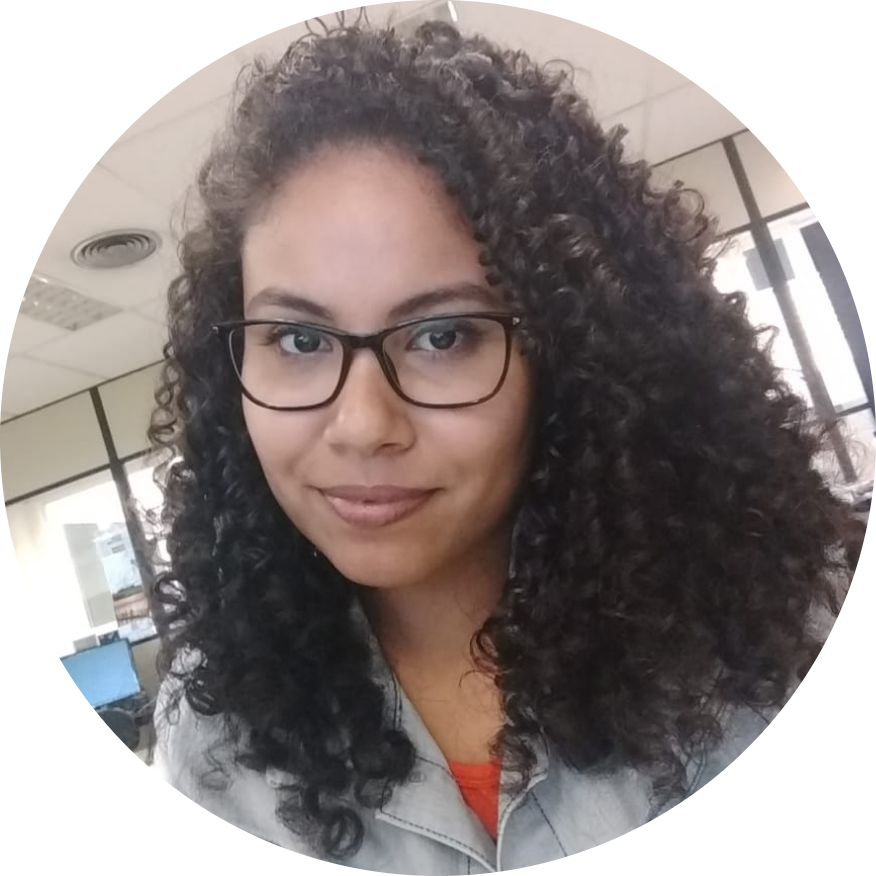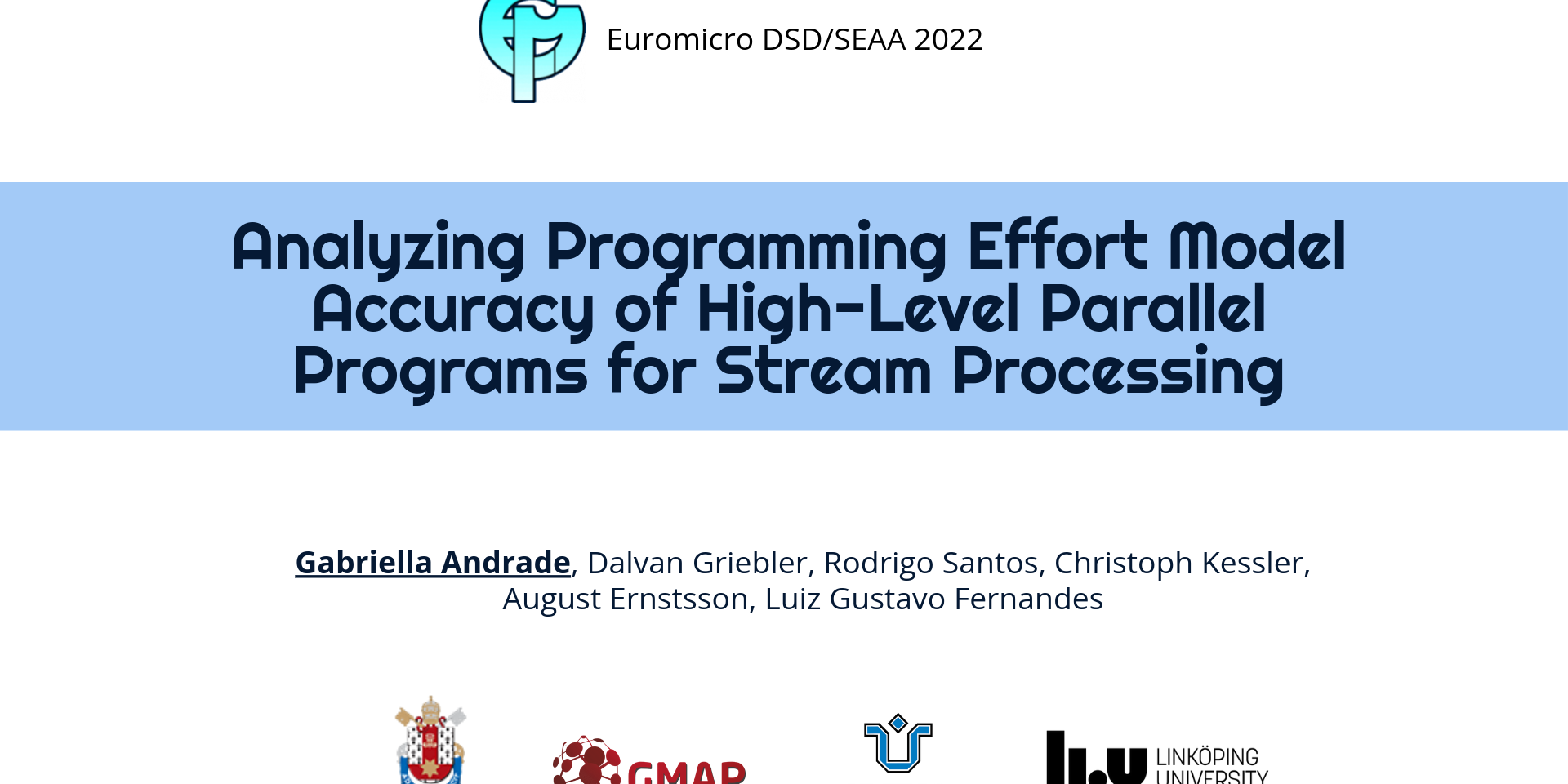The Euromicro Conference on Software Engineering and Advanced Applications (SEAA) is an international forum for researchers, practitioners, and students to present and discuss the latest innovations, trends, experiences, and concerns in the field of Software Engineering and Advanced Applications in information technology for software-intensive systems. This year, the event occurred from August 31st to September 2nd on Gran Canaria island in Spain. However, the authors, who are unable to travel to Gran Canaria due to the COVID-19 pandemic, were able to make their presentations online.
The paper entitled “Analyzing Programming Effort Model Accuracy of High-Level Parallel Programs for Stream Processing” was presented at SEAA 2022 by GMAP Ph.D. student Gabriella Andrade. The work was advised by Dr. Luiz Gustavo Fernandes and co-advised by Dr. Dalvan Griebler. In addition, it had the collaboration of Dr. Rodrigo Santos from UNIRIO, Dr. Christoph Kessler from Linköping University, and Ph.D. student August Ernstsson from Linköping University.
The following is the abstract of the article:
Over the years, several Parallel Programming Models (PPMs) have supported the abstraction of programming complexity for parallel computer systems. However, few studies aim to evaluate the productivity reached by such abstractions since this is a complex task that involves human beings. There are several studies to develop predictive methods to estimate the effort required to program applications in software engineering. In order to evaluate the reliability of such metrics, it is necessary to assess the accuracy in different programming domains. In this work, we used the data of an experiment conducted with beginners in parallel programming to determine the effort required for implementing stream parallelism using FastFlow, SPar, and TBB. Our results show that some traditional software effort estimation models, such as COCOMO II, fall short, while Putnam’s model could be an alternative for high-level PPMs evaluation. To overcome the limitations of existing models, we plan to create a parallelism-aware model to evaluate applications in this domain in future work.
More information about SEAA 2022 can be found on the official website.

By: Gabriella Andrade







